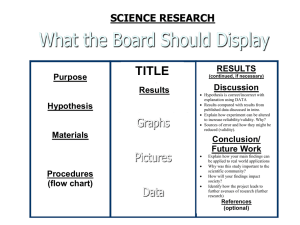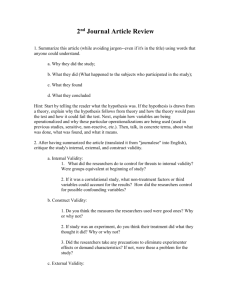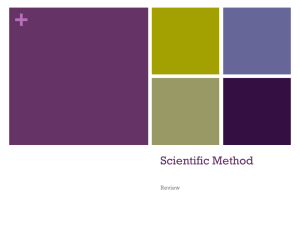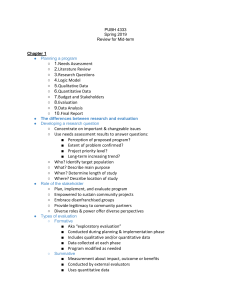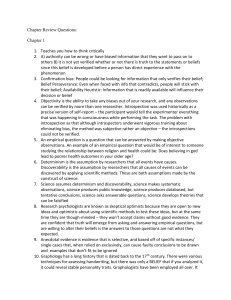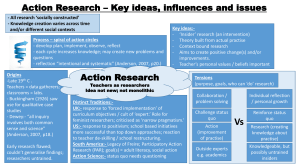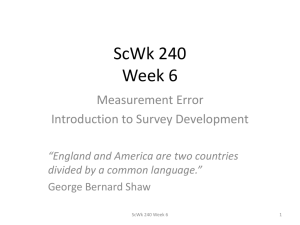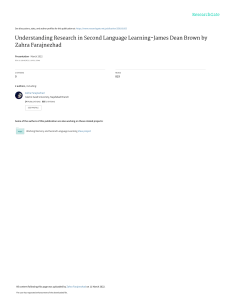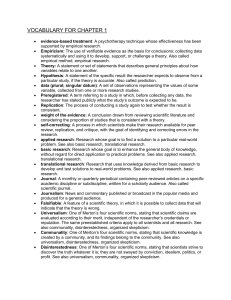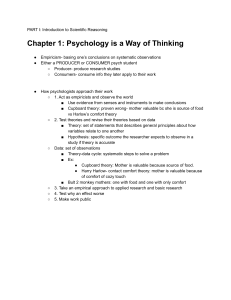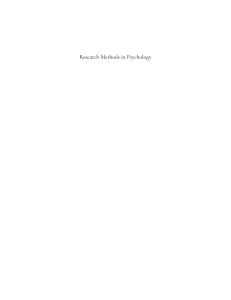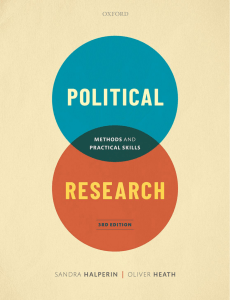ScWk 242: Course Wrap-Up and Summary Session 16 Slides
advertisement
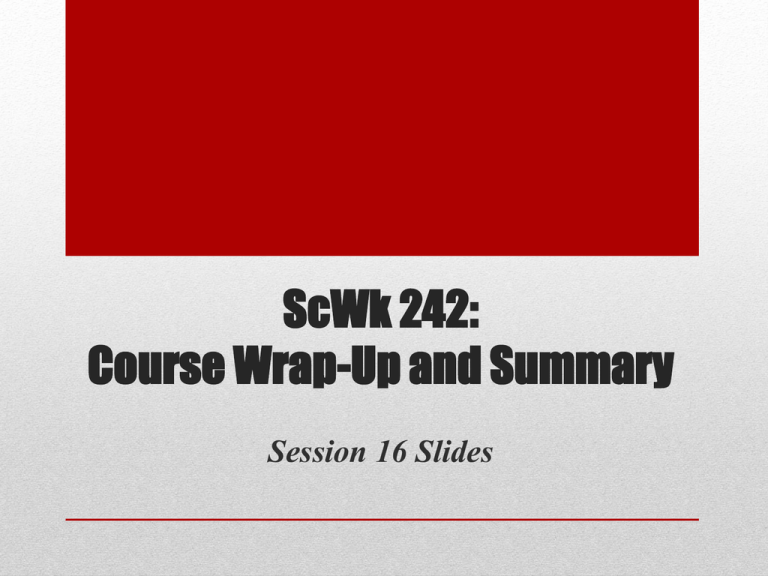
ScWk 242: Course Wrap-Up and Summary Session 16 Slides Importance of scientific inquiry in social work Strategies for measuring social work effectiveness Need to carefully analyze and critique research quality Importance of compassion and professional ethics Understanding the principles of the scientific method Recognizing flaws in unscientific and untested sources Reliability and Validity Concerns Realizing that all researchers faces challenges & choices Major Research Issues 2 Quantitative, Qualitative, Single Subject, and Evaluation Types of Measures – Nominal, Ordinal, Interval, & Ratio Sampling Options and Challenges Research Designs, including Pre-, Quasi-, & Experimental Internal and External Validity Needs Assessment and Use of Logic Models Process and Outcome Program Evaluation Accountability and Politics in Research Important Research Concepts 3 • Variables are measures of a concept that take two or more values, such as male or female. • The independent variable is the presumed cause, and the factor that precedes the effect in time. • The dependent variable is the effect or outcome that is presumed to be impacted, and follows the cause in time. • Intervening variables come between the independent and dependent variables. • The null hypothesis states the negation of the relationship proposed in the research hypothesis. Basic Terms 4 • Researchers must always question the findings that are derived from research studies • Questioning research findings will lead to more research activity (e.g., replication) aimed at finding the “truth” Skeptical Curiosity 5 Share research honestly, by clearly explaining what you did and what you found in your study. Be especially honest when: • the research results are the opposite of what was expected (hypothesized) • the research results are not clear cut Honesty and Integrity are Vital 6 Research can only add knowledge to things that “exist” in the sense that they can be observed or measured Knowledge is neither certain nor absolute • What we think we “know” today can easily change tomorrow Nothing (almost?) is Forever 7 • Knowledge and competence are essential social work tools • There are many ways of knowing, one of which is the research method • Research can be approached in different ways • Research defines a preferred way of thinking and action • Social workers engage in three research roles: consumer, contributing partner, and creator/disseminator • All the best to you in the years ahead!! Summary 8
